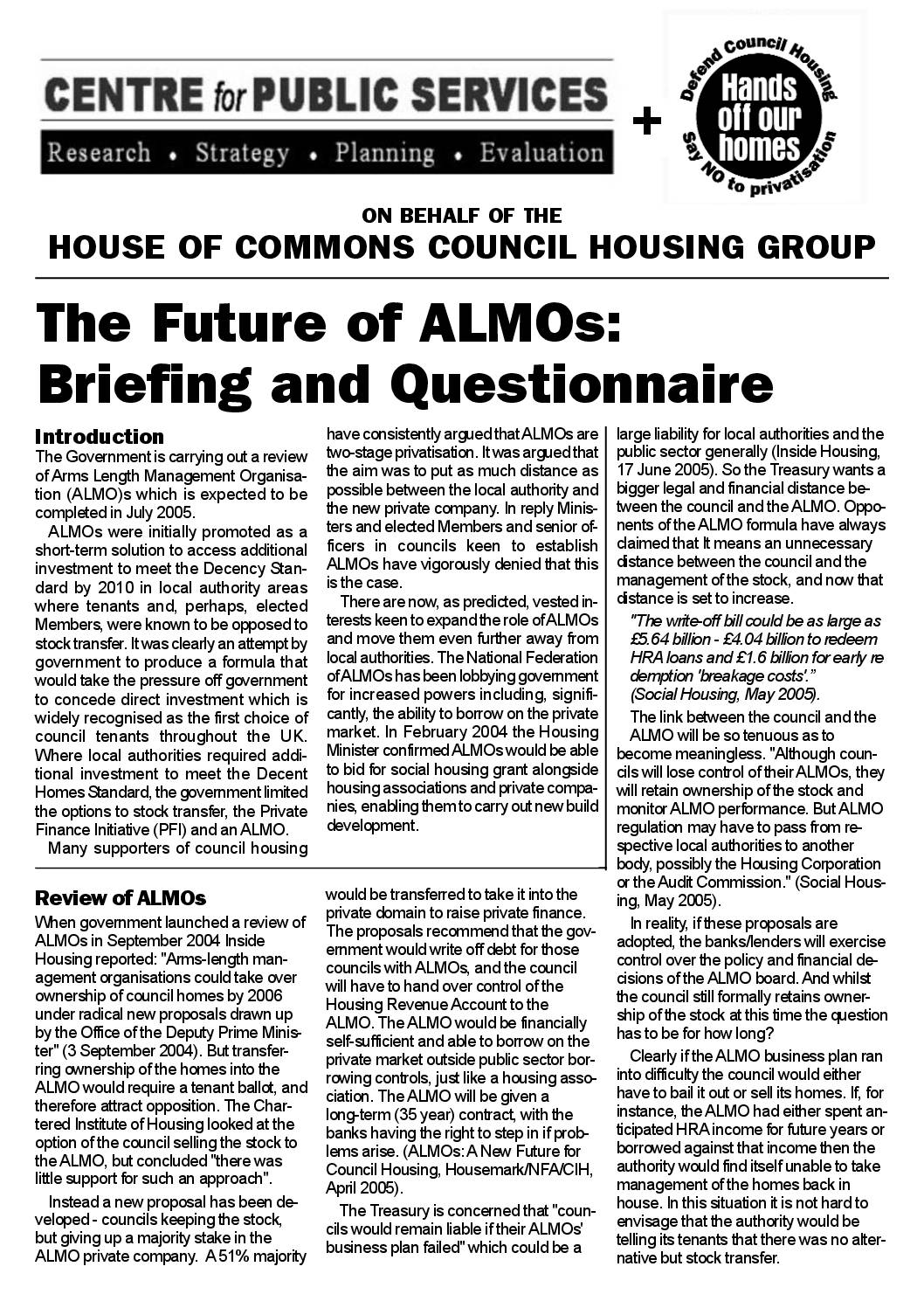The April 2006 issue of the PFI Journal contains an article by Dexter Whitfield, The Marketisation of Teaching, which examines the potential impact of the Building Schools for the Future programme on education. The Marketisation of Teaching is available in the Outsourcing and PPP Library.
-
Newcastle excludes facilities management and ICT from Building Schools for the Future contract

Newcastle City Council has set a national example by excluding soft facilities management services (catering, cleaning, grounds maintenance, security and waste management) and Information and Communications Technology (ICT) from the BSF/PFI contract. The ICT contract alone is valued at £16.5m. The UNISON branch of Newcastle City pressed for the exclusion of both soft FM and ICT at the start of the procurement process and commissioned the Centre for Public Services report How to Exclude Support Services from Building Schools for the Future and PFI Projects.
The City Council agreed to require bidders to submit a mandatory bid which was evaluated with in-house bids from Neighbourhood Services and the in-house ICT service working with Dell. The evaluation process included staffside input from UNISON and the Centre for Public Services together with GMB and staff representatives from some of the schools in the BSF project. A preferred bidder is expected to be appointed in March or April.
-
Public Private Partnerships in Ireland

Public Private Partnerships: Public Services or Corporate Welfare seminar. Dexter Whitfield from CPS gave a paper at the Public Private Partnerships: Public Services or Corporate Welfare seminar organised by the Centre for Urban and Regional Studies at Trinity College, Dublin in December 2005.
-
Secondment of Staff for New Tyne Tunnel

The case for seconding the 95 staff employed on the existing Tyne Tunnel rather than transferring them to the operator of the New Tunnel was put in a detailed report for Newcastle UNISON. However, the Passenger Transport Authority decided to transfer staff to the new operator when the tunnel is built.
-
HBS sacked by Bedfordshire County Council

Bedfordshire County Council has terminated the £265m Strategic Service-Delivery Partnership contract with HBS Business Services (owned by private equity group Terra Firma) in August 2005. HBS was been given a months notice for breach of contract. Over 500 staff transferred back to the County Council. This is the second SSP contract to be terminated and is a major setback for the Government and business lobby which promoted the SSP concept. Bedfordshire UNISON and the Centre for Public Services produced a detailed report revealing HBSs poor performance in March 2005 – see news items below to download a copy of the report.
-
ALMOs – National Housing Survey of Elected Members, Tenant and Trade Union representatives

The Centre for Public Services and Defend Council Housing are carrying out a national survey on behalf of the House of Commons Council Housing Group to assess the views of tenants associations and federations, elected members, trade unions and housing organisations on their perspective for the future of a Arms Length Management Organisation (ALMO). ALMOs were initially promoted as a short-term solution to access additional investment to meet the Decency Standard by 2010 in local authority areas where tenants and, perhaps, elected Members, were known to be opposed to stock transfer.
There are now, as predicted, vested interests keen to expand the role of ALMOs and move them even further away from local authorities. Many ALMOs have already/are considering outsourcing repairs and maintenance and other services. Yet in many authorities tenants were given the clear promise that once Decent Homes had been achieved the homes would revert back to council management. In other authorities tenants were assured that the ALMO would only involve a cosmetic change and they wouldn’t notice any difference.
-
Economic and Social Audit for the North West

The final report of a three-year scrutiny of regional performance for the North West Regional Review, published by the North West Regional Assembly. The report examines progress in eleven targets – sustainable economic performance, investment, employment, skills, productivity, innovation, enterprise, urban, rural, regeneration and physical development. It examines progress towards social justice in the North West, assesses the impact of external opportunities and challenges to regional performance and recommends a new approach to assessing regional performance.
-
Democratic Governance and the Future of the City

A joint project by Centre for Public Services and the Sustainable Cities Research Unit, University of Northumbria involving the Wainwright Trust, Millfield House Foundation, Newcastle UNISON, the Public and Commercial Services Union and the Northern Region of the TUC. The first theme is an analysis of the ‘state of governance’ and the systematic erosion of democratic institutions through neoliberalism and corporatisation and marketisation in particular. It will also examine alternatives strategies how a multi-cultural and sustainable city built on social justice can be created. The second theme is the relationship between democracy and the quality of life. This theme will examine how more sustainable local and regional economies can be developed, enhancing both urban and rural quality of life.
-
Swansea City Council ICT

The Centre provided assistance to the ICT Staff Employment Model Team between December 2004 and April 2005 who were assessing three employment options in the outsourcing of ICT services. Despite the staff making a strong case for a secondment/mixed economy model, the City Council decided to opt for full outsourcing.
-
Building Schools for the Future campaign leaflets

The Centre prepared three leaflets for the Council and Teacher Trade Unions in Tyne and Wear: What Price New Schools, Local Control Threat and Building Schools for the Future Charter. The Centre prepared three leaflets for the Council and Teacher Trade Unions in Tyne and Wear:

